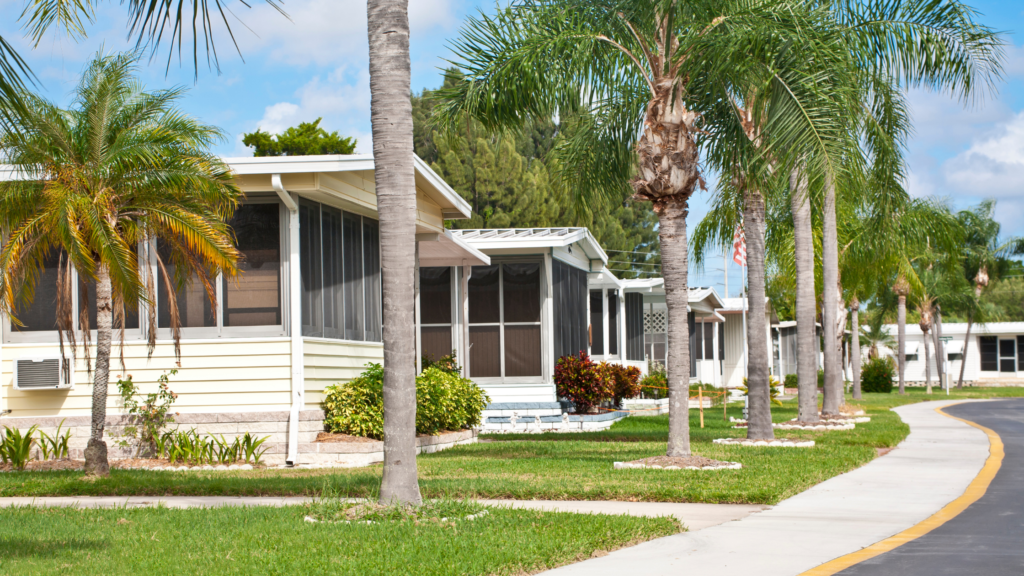Land and Lots
There are situations where the manufactured home remains personal property and is placed on the land. The land is considered real property. In this case, the land appreciates while the manufactured home, technically, depreciates. Although, the actual test for market value is determined by what a buyer is willing to pay.
As previously mentioned, the home could be located on a permanent foundation on private land. `Steps may be taken to convert the home from personal property to real property. Usually, the title is surrendered, and a deed is created to evidence the ownership. The home is re-assessed by the local property appraiser as a permanent residence. Each municipality may have different actions that need to be taken, so be sure to check with them if this becomes part of your investment plan.
Reasons for converting to real property as a permanent residence include having more favorable financing terms and appreciation. The status also affects the way the home is taxed. The land is taxed, and the improvements to land, such as buildings, garages, sheds, etc., are also taxed. (These improvements may also be taxable if the home is in rented space.)
When renting a lot in a park, there are various ways the park may be run. Sometimes the park owners own some, or all, of the homes rented at the location. These are referred to as park-owned homes (POH). There are also tenant-owned homes (TOH). Lenders usually prefer these as they represent a strong rental base since it is not easy or common to leave in the middle of the night with the home in tow – regardless of being called mobile homes. The property taxes are paid by the park owner and utilities and maintenance for the common areas. The lease will tell whether the owner or the tenant pays for water/sewer, garbage, and gas/electricity.
Some management models include tenant-owned parks with associations. The association fees cover the common area maintenance, upkeep of the amenities and common area utilities, and other operating expenses.
Age Restricted Parks. Some parks are intended for people who are 55 years of age and older. These are sometimes referred to as retirement communities and may cater to seasonal residents or fixed incomes.
All-Age or Family Parks. The absence of age restrictions means the potential renter pool for the lots is the broadest for the market.
It is essential to understand the type of park and its restrictions before purchasing homes to be sold or rented in them. Building rapport with the owners or management is one of the first objectives you will have. Skipping this step could make doing business there difficult or undesirable since they will control the approval of your tenants and buyers.


